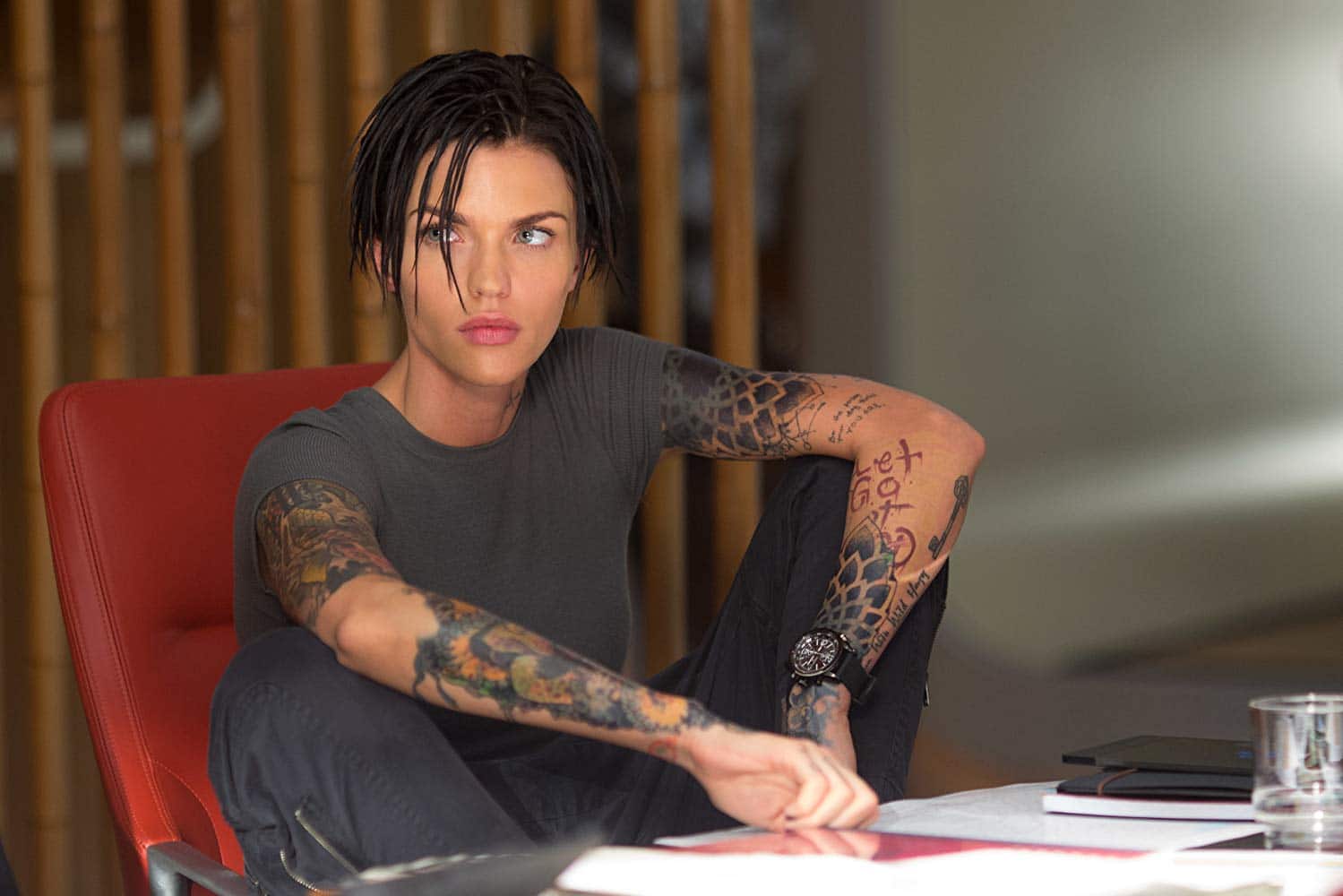Rose has landed the role of the iconic comic-book heroine and is set to appear as part of CW’s Arrowverse in December, but has faced criticism since the announcement.
Ruby Rose is CW’s woman of choice for the highly-anticipated arrival of Batwoman to their DC TV comic-book universe, which was revealed a week ago. The heroine’s debut will be as part of the annual crossover event which includes the four current shows of the Arrowverse, expected to air in December. Arrow, The Flash, Supergirl, and DC’s Legends of Tomorrow may however be swiftly joined by a fifth addition to their world. A Batwoman series is currently in development and could potentially debut by 2019. This, however, could now be dependant on the reception of Rose’s portrayal of Batwoman. Already, initial responses to her casting alone have not been the warmest.
Kate Kane, Batwoman’s alter-ego, will be the center of Batwoman as its own show. The character of Kane is set to flaunt both impeccable physical and intellectual skills and is also concerned with social justice and action. Openly lesbian, this has become a large feature of her character in the comic books in a celebratory manner, and hopefully will not be shied away from in the adaptation. There are a number of LGBTQ characters already placed in CW’s Arrowverse, so this shouldn’t be a problem. Ultimately, the show will showcase Kane as battling her own struggles while simultaneously becoming Gotham’s savior and symbol.
Rose’s casting prompted celebration and a sense of relief that the CW had chosen an LGBTQ actress for the role. Gender-fluid and lesbian, Rose said of her role, “This is something I would have died to have seen on TV when I was a young member of the LGBT community who never felt represented on TV and felt alone and different.”
Despite this, Rose has promptly left social media since the casting announcement. Backlash in the form of the hashtag #RecastBatwoman is the likely culprit, and criticisms seemed to center on three different threads; Rose isn’t Jewish; she isn’t gay enough; and that she’s a too-obvious choice. Two out of three of those critiques seem almost laughable, and the CW had even stated prior to casting that there would be no-set ethnicity of Batwoman in the series to allow for wider possibilities.
With Batwoman being Jewish in the comics, when news emerged of the show and it’s casting requirements (or remittance thereof), this prompted hopes for a woman of color to lead; a black or brown lesbian Batwoman would not only inevitably be pretty cool, but could have been an even grander victory for representation in the scheme of things. Instead, the Batwoman which has eventually been cast doesn’t even pass the marker of being Jewish as the original character had been. Rose seems to have dismissed this, and other media outlets may have allowed it to become lost in the idea that people are outraged Rose isn’t “gay enough.” However, is the lack of ethnic representation really too far of a critique? In what was practically a removal of Batwoman’s Jewish heritage to transfer over to screen, may it have been so difficult to understand that where LGBTQ representation matters, race, and ethnoreligious representation matters too?
The opposing argument is that there is simply not enough actors to represent this identity and that audiences should be grateful that at least one minority facet of Batwoman’s identity has been dealt with. That’s perhaps the real idea of what the criticism was intended to highlight; certainly, somewhere out there, there is at least one Jewish LGBTQ actress who could have played the part, and done so very well. Rose is a big name for the series to hang on and evidently attracts publicity and attention, and so this is worth noting. However, this opens up the larger criticism of the media industries in that there is an ‘acceptable’ version of an LGBTQ or non-white actor, and that when these acceptable representations have been found, the same ones will be used time again, not truly allowing for as wide a representation which exists in reality. The argument that Rose is an obvious choice isn’t one in which should be rendered invalid, but the blame for this shouldn’t be laid at her feet, either. It’s down to producers and studios to be more aware of their inclusivity and casting choices.
At the heart of it all is Batwoman’s identity, which leads her representation to be of such importance. There are tremendously few lesbian characters on-screen and little which have such precedence as Batwoman would with her own show. In this case, Ruby Rose may have been a glaringly obvious choice, but she cares about the project and is more than just passionate about representation for the LGBTQ community on-screen. Her appearance anywhere is likely to be a win for LGBTQ representation. Although LGBTQ audiences shouldn’t have to sit content with whoever is chosen for the next role which represents a wider range of sexualities or genders, it can be said that things are progressing and the conversation around the topic shows the awareness placed upon representation.

